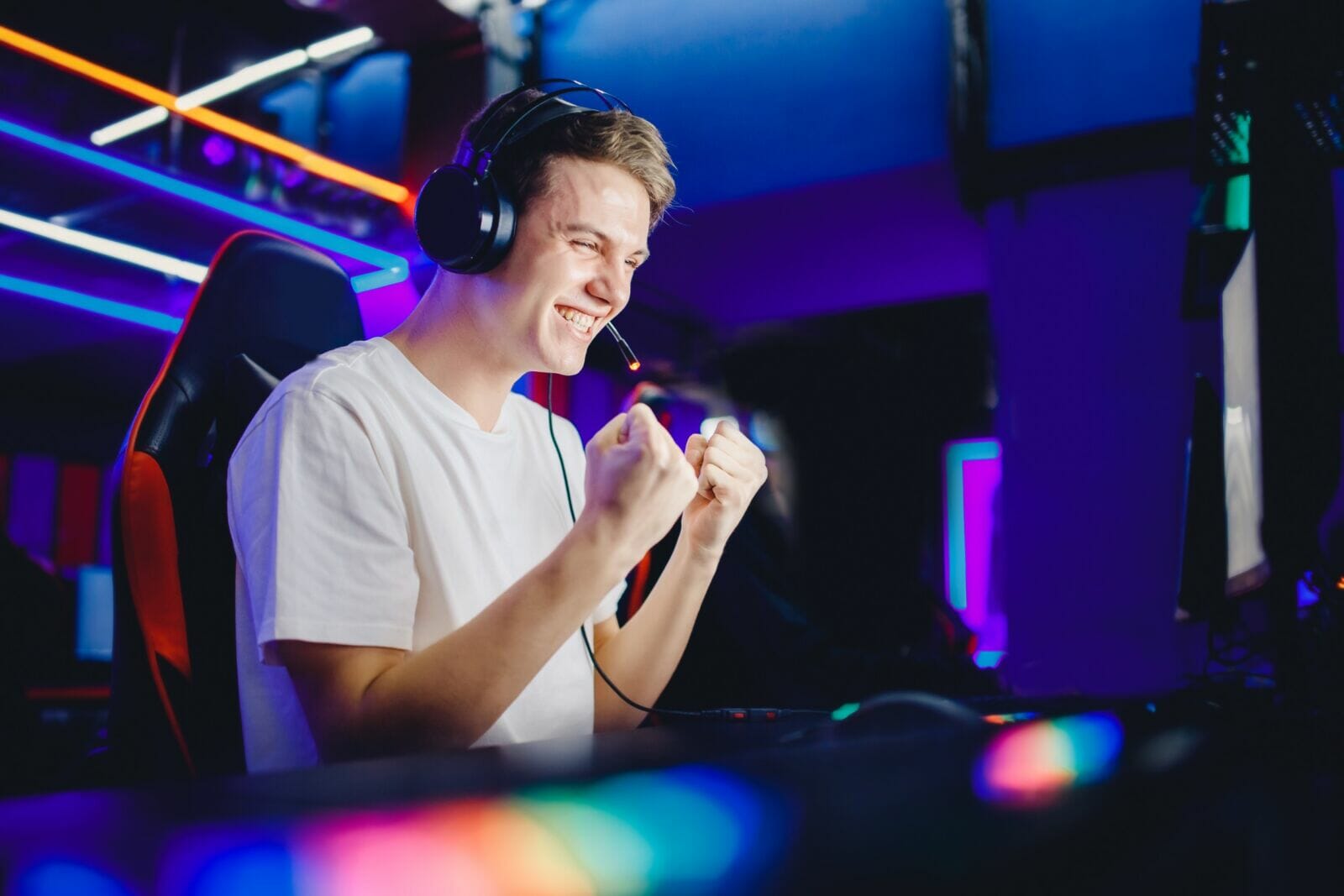Video games may be more beneficial to academic performance than previously reported, according to accounts from current ASU students.
Previous studies regarding the problems posed by the video game industry may in fact need to be revisited based on the testimonies of ASU’s E-Sports Lounge.
For decades, debates have raged over video games, discussing such things as morality, violence, and distraction from school. In fact, the very first controversy dates all the way back to 1976 with a game called Death Race.
Mortal Kombat sparked such a rage in the public that it spawned the creation of the Entertainment Software Rating Board 1994. The ESRB issued a rating scale of Early Childhood, Kids to Adults, Teen, Mature, and Adults Only, giving Mortal Kombat an M.
Many times when a young person in particular is involved in a violent act, the media and politicians like to point their fingers at video games as the cause of that person’s aggression.
READ ALSO: Here’s how ASU esports lounge helps hone skills for career path
READ ALSO: With GCU setting the standard, Arizona is becoming a hotbed of college esports
A mass shooting in 2019 in El Paso, TX prompted the then President Donald Trump to say in a press conference on August 5 of that year that we must “stop the glorification of violence in our society. This includes the gruesome and grisly video games that are now commonplace.”
Trump was referring to the manifesto supposedly left behind by the shooter, in which he briefly mentioned popular game Call of Duty in one sentence. The former President left out that the majority of the manifesto was filled with anti-immigration rhetoric.
Video games have also been attacked within the world of academics. Many claim that playing these games leads to poorer performance.
But recent studies and the feelings of current students suggest that the truth may be a lot more nuanced than gaming detractors would have the public believe.
For one thing, video games are now so pervasive that it is becoming more and more rare to find a young person who doesn’t play them to at least a minimal degree.
The United Kingdom based charity the Young Gamers and Gamblers Education Trust commissioned a study in 2019 to look at attitudes and related behaviors towards both video games and gambling in higher education students.
They found over 2,000 undergraduates and postgraduates to participate in surveys regarding their habits. The study said, “ Gaming itself is widespread with 79% of students saying they game with 35% playing them on most days while one in six (17%) play every day.”
At face value, the YGAM study seems to repeat the belief that gaming is a mostly negative hobby. They go on to say that 48% of students admitted video games have got in the way of their academic performance, as well as other aspects of life.
“The findings also reveal that for those who game every day, one fifth have a negative sense of belonging at university, and over one-third say it has got in the way of their social life,” the report says.
But students within ASU are not so quick to agree.
Jesse Brawders, the current president of the ASU ESports Association, said that the mental benefits are invaluable.
“For me, gaming has been a way for me to escape the hardships and struggles in my life and just enjoy playing a game with my friends,” Brawders said. “I have met a majority of my friends at ASU through my involvement in esports, and I honestly don’t know if I would have been able to stay mentally checked in if I wasn’t able to connect to my friends, both here and at home in Wisconsin, if it wasn’t for gaming.”
Staying mentally checked in was especially necessary during the 2020 lockdown. Brawders explained that not being able to meet physically meant that playing online games together was the only way to enjoy time with friends, something that helped with the immense stress of the pandemic.
When it comes to academics, Brawders said, “After I was a few weeks into my freshman year, I realized that I had to adapt my time management, so I had my main focus on my classes and gaming turned into a way for me to destress about classes.”
And they’re not alone. Zachary Sierra, a junior in ASU’s Walter Cronkite School of Journalism and Mass Communication, said that while his gaming habits have been more detrimental than good, they still provide a break from the stresses of school and life.
“As long as you manage your time wisely, there is always time for relaxation,” Sierra said.
Both Brawders and Sierra said that their gaming habits have changed drastically since starting at ASU, dropping from every chance to hardly at all in Sierra’s case. This suggests that video games, like other aspects of behavior, should be looked at as something that can change given an understanding of the consequences.
Studies that look solely at academic performance also miss a fundamental benefit that video games provide, which these students recognize – mental health.
Higher education is an often gruelling ordeal, with 25.7% of first time bachelor’s seekers ultimately dropping out, according to Education Data Initiative.
Sierra, who admitted he’s taking a break from games to focus on doing the best he can at school, said that games absolutely contribute to his overall mental wellbeing.
“For me, it makes me less stressed, gives me the freedom to choose rather than be dictated by society, and gives me happiness when I accomplish even the smallest thing because I know it’s something that I can enjoy.”
He’s not alone. According to the YGAM study, 48% of their participants said that gaming reduces their stress.
Going further, digital games can even have a positive effect on academics if applied in the right way. A study published in the journal Entertainment Computing called “The impact of video games on Students’ educational outcomes” found that “students spend more time on video games, but still they earn high grades. The best students winning approach is ‘Play hard – Study hard’.”
The study’s authors conclude that when games act as a reward scheme for completing schoolwork or achieving good marks, they provide the student with an appropriate balance that can be seen in their work.
This study also echoes Brawder’s earlier statement that gaming can be and frequently is a social opportunity. Despite most of the interactions taking place virtually over the internet, real bonds are formed between those who game together regularly.
Brian Grgantov of ASU’s ESports Association discovered as much when he joined the group.
“Competitive gaming to me is great with your team, because you are able to have the social aspect as well as creating friendships and bonds within the ASU Esports Association. With any hobby/sport/activity, there are both sides to it, but I have felt a positive impact from gaming.,” Grgantov said.
He spends the majority of his gaming time, ten to 15 hours a week, playing competitively. But he said that his busy schedule has not affected his grades.
The key thing that keeps coming up from various studies as well as first hand accounts within ASU appears to be moderation. As long as a student manages their schedule and leaves time to complete school work, than video games are no more harmful to that student than any other type of hobby.
This is something Grgantov understood when joining the ESports Association.
“Playing for a competitive team within ASU has brought more structure and schedule to my life, since I have to make sure with school, work, and other hobbies that I have time to do them all.”




